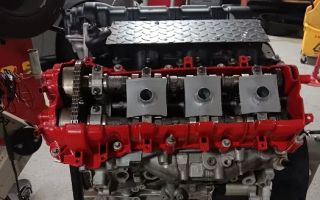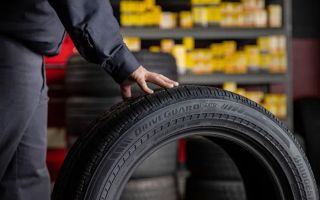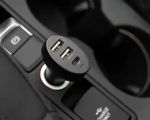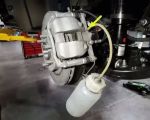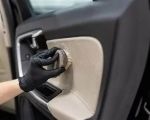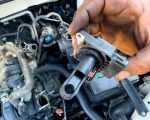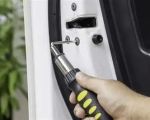Understanding Your Car's Wheel Bearings
- 1. What Are Wheel Bearings?
- 2. How Do Wheel Bearings Work?
- 3. Signs of Bad Wheel Bearings
- 4. Why Wheel Bearings Are Important
- 5. How to Maintain Your Wheel Bearings
- 6. Conclusion
1. What Are Wheel Bearings?
Wheel bearings are crucial components of your car’s suspension and wheel systems. They are small, durable devices designed to help your car’s wheels rotate smoothly and efficiently. Essentially, wheel bearings support the weight of the vehicle while allowing the wheels to turn with minimal friction. They play a vital role in the overall safety and performance of your vehicle.
Wheel bearings come in different designs, including ball bearings and roller bearings, but their primary purpose remains the same—ensuring smooth and controlled wheel movement. These components are usually located between the wheel hub and the axle, facilitating both rotation and load distribution.

Pick Your Part - Help Yourself
1232 Blinn Ave, Wilmington, CA 90744, USA
2. How Do Wheel Bearings Work?
The wheel bearings work by reducing friction between the wheel hub and the axle. This enables the wheel to rotate freely, which is essential for smooth driving. When a car is in motion, the wheel hub turns around the axle. The wheel bearing, located within the hub, allows the axle to rotate with minimal resistance.
In addition to facilitating wheel rotation, wheel bearings help in supporting the car’s weight, stabilizing the wheel, and reducing wear and tear on other components of the suspension system. Without proper functioning wheel bearings, your car would experience increased friction, which would not only make driving difficult but also cause premature wear on other vehicle components.

Pick Your Part - Greer
13054 E Wade Hampton Blvd, Greer, SC 29651, USA
3. Signs of Bad Wheel Bearings
Over time, wheel bearings can wear out due to stress and friction. When this happens, it can lead to various problems with your vehicle. Recognizing the signs of bad wheel bearings early on can save you from costly repairs and potential safety issues. Some common symptoms of failing wheel bearings include:
- Grinding or Rumbling Noises: One of the first signs of a bad wheel bearing is a loud grinding or rumbling noise coming from the wheel area. This noise tends to get louder as the vehicle speeds up and can be more noticeable when turning.
- Vibrations or Wobbling: If your wheel bearing is worn out, you may feel vibrations or wobbling through the steering wheel, especially at higher speeds. This can indicate that the wheel isn’t turning smoothly.
- Uneven Tire Wear: Bad wheel bearings can lead to misalignment, causing uneven tire wear. If you notice your tires wearing unevenly, it could be a sign that your wheel bearings need to be checked.
- Loose Steering: If the wheel bearings are compromised, steering can feel loose or unresponsive. This issue could make it difficult to control the car, creating a safety hazard.
If you experience any of these symptoms, it’s important to get your car checked as soon as possible. Ignoring these signs can lead to further damage to your vehicle’s suspension system and increase repair costs.
4. Why Wheel Bearings Are Important
Wheel bearings are essential to the smooth operation and safety of your vehicle. They not only help the wheels rotate efficiently but also ensure that the car handles well and stays stable. Bad wheel bearings can affect everything from your car's handling to its fuel efficiency. Some of the reasons why wheel bearings are so important include:
- Safety: Worn-out wheel bearings can cause your wheels to become unstable, which can lead to dangerous driving conditions, such as difficulty controlling your vehicle or even complete wheel failure.
- Vehicle Performance: Properly functioning wheel bearings ensure smooth, efficient wheel movement, which contributes to better overall vehicle performance and handling.
- Prevention of Further Damage: When wheel bearings fail, they can put stress on other parts of the suspension and steering systems. Replacing bad wheel bearings early can help prevent damage to these more expensive components.
In essence, your wheel bearings play a crucial role in both the safety and longevity of your car. Without them, your vehicle wouldn’t perform as smoothly, and its overall lifespan would be significantly shortened.
5. How to Maintain Your Wheel Bearings
Maintaining your wheel bearings is essential for ensuring the longevity and safety of your vehicle. Here are some tips to help keep your wheel bearings in optimal condition:
- Regular Inspections: Have your wheel bearings inspected regularly, especially if you notice any signs of wear or unusual noises. It’s recommended to check them during routine tire changes or brake servicing.
- Avoid Harsh Driving: Try to avoid excessive speed, sudden stops, and rough driving, as these can put unnecessary stress on the wheel bearings.
- Lubrication: Wheel bearings require proper lubrication to reduce friction. Make sure the bearings are adequately lubricated to prevent wear and tear.
- Check for Alignment: Misaligned wheels can put extra pressure on the wheel bearings. Ensure that your wheels are properly aligned to prevent premature bearing failure.
By regularly maintaining your wheel bearings, you can avoid unexpected failures and keep your car running smoothly for years to come.
6. Conclusion
Understanding your car’s wheel bearings is crucial for keeping your vehicle running smoothly and safely. These small but important components play a vital role in reducing friction, ensuring efficient wheel rotation, and supporting your vehicle's weight. If you notice any signs of bad wheel bearings, it's essential to get them checked out promptly to prevent further damage to your vehicle’s suspension system. For expert assistance and reliable automotive services, visit Rescue & Towing for high-quality products and professional care for your car’s wheel bearings and other essential components.









